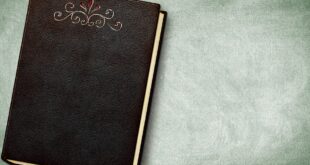Unpacking Literature: A Comprehensive Guide to Theories and Techniques
The Importance of Analyzing Literature
Literature is a fundamental means of representing aspects of human experience that cannot be easily grasped through other mediums. When readers engage with literary works, it often leads them to a deeper understanding of societal and cultural constructs. Thus, properly analyzing literature requires expertise in a broad scope of theories and techniques that help decode the meanings presented in various works.
Known Theories and Historical Contexts
Before undertaking any literature analysis as a student, or author, it’s critical to understand famous theories and historical backgrounds of the relevant author concerning the fantastic piece. Depending on the theoretical framework behind the given piece of literature, various analysis methods will be more appropriate. Wealths of theories such as Négritude, Feminist, and Structuralism exist that reveal how society and culture during various historical contexts are reflected through creative works of authors.
The feminist perspective
For instance, the feminist view sparkled mainly from the struggles women endured. This view typically carries with foundational theoretical influences like Marxism, Psychoanalysis, and Continental Philosophy (Spivak and McClintock 38). At the core of this view is deconstruction of binary gender roles and analysis of economic, political and social needs. When adopting this theory together with incorporating discussions on subjectivity, a reader can reflect on biased depictions of gender across different literature.
Structuralism perspective
On the other hand, structuralism questions human subjectivity by assessing the structured systems distinct from the characterization interpretation. It generally focused on class and hierarchy while analyzing how structures impact subgroups within society. Specifically, this view related to seeking from deep tracing in history on specific language usages of syntax, diction connected to specific cultural periods., examining how issues integrating meaning originated through cultural elements.
The Significance of Taking Literary Devices into Consideration
Literary analysis calls for understanding the particular literary device used to determine the author’s intentions in using these tools. Aesthetic devices work to help enrich language and transform words into imaginative and vivid constructions. These instruments can include poetic speech features, narrative perspective, tone, syntax, and allusions. Comprehending the implications of any of these features will help identify important meanings hidden beneath the surface for readers in any composition. With Literature specialization, it easy to absorb what techniques an author undertook to elevate meaning expression; simultaneous to seeking the primary message conveyed.
Techniques for Analyzing Literature
Despite a vast number of theories, various techniques, tricks including elements from both the subject and the object, still emerge when teasing meaning from arguments in a literary text. Rather than solve any vague message, it offers guides and processes creating derivative analysis stances. These techniques typically involve thoroughly reviewing a chosen passage or work, beginning with regional peculiarities like words denotations or connotations leading up to detailed syntax probe of each sentence.
Another indicator is adapting through focusing on literary elements from singular works of literary literature, characterizing or expressing the main message concentrated with critical innermost sensual aspects of an intention ultimately helping readers comprehend expressed elements in the context.
Conclusion
In closing, literary critique demands mindful awareness of subsets these devices enriched writing instill. Focusing on both individual nuanced textual contents composition elements through practical historical theory frameworks attached to life, understanding societally can give art the context concerning stability. With deeper object mastery, presenting more meaningful innermost ideas encased within text exuded by use of both assigned analytical techniques and various known theories would prove more efficient on any academic level.
 Mind Uncharted Explore. Discover. Learn.
Mind Uncharted Explore. Discover. Learn.


